A Golden Elixir for the Common Cold
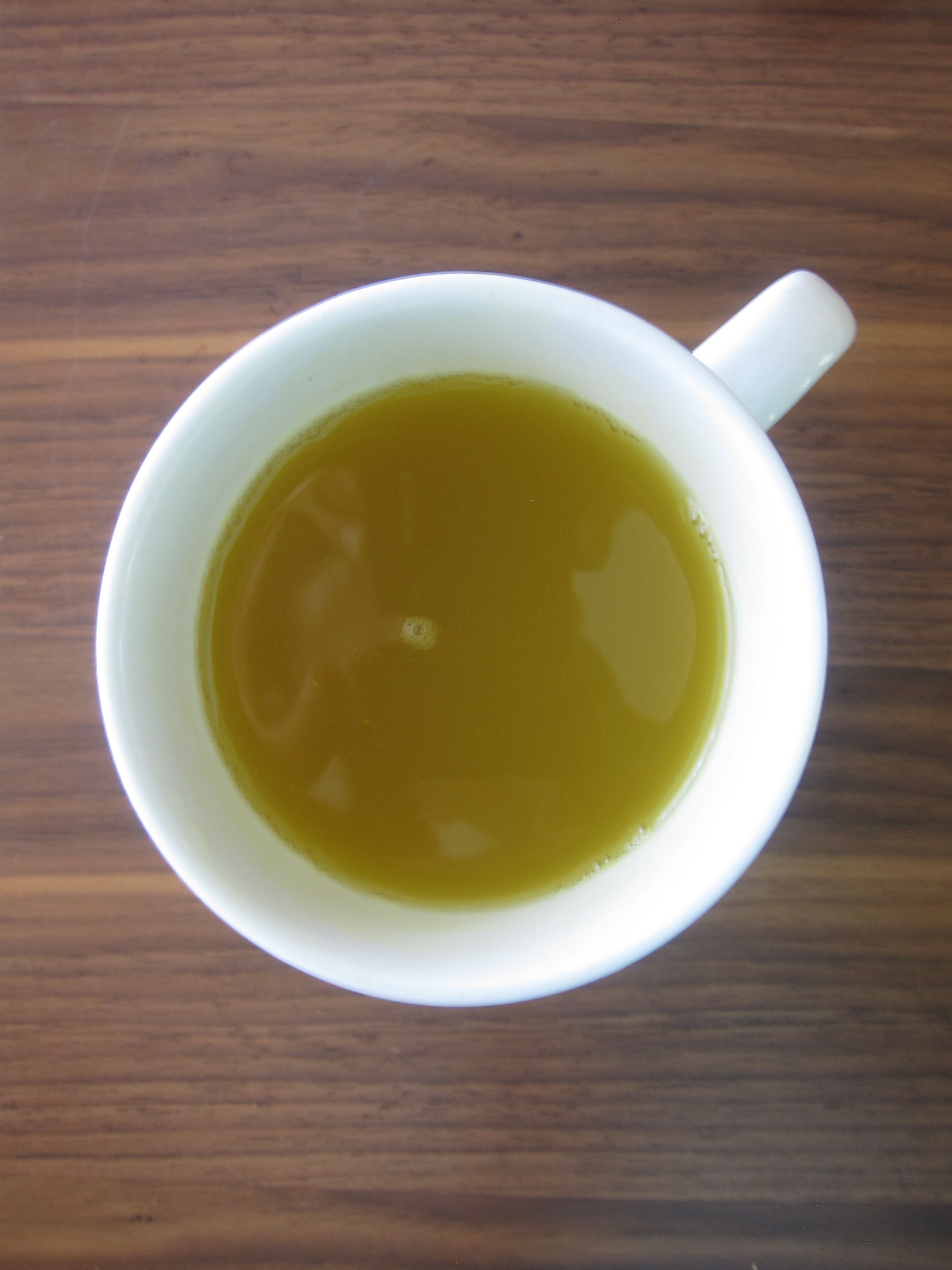
As daylight ebbs and fades and shadows lengthen and stretch, the unfolding of winter is upon us. The season can evoke a gorgeous quietude – a period of inner reflection. For many of us, however, it is teeming with stress (holiday- related and otherwise). This sets the stage for one of the most ubiquitous ailments: the common cold.
I find myself coming back to his elixir time and time again. The individual spices each on their own confer astounding health benefits . Together, they are an salutary force of staggering proportion. (Please note, this recipe contains honey and honey is not to be given to children under the age of one year). I hope this special brew helps you feel better.
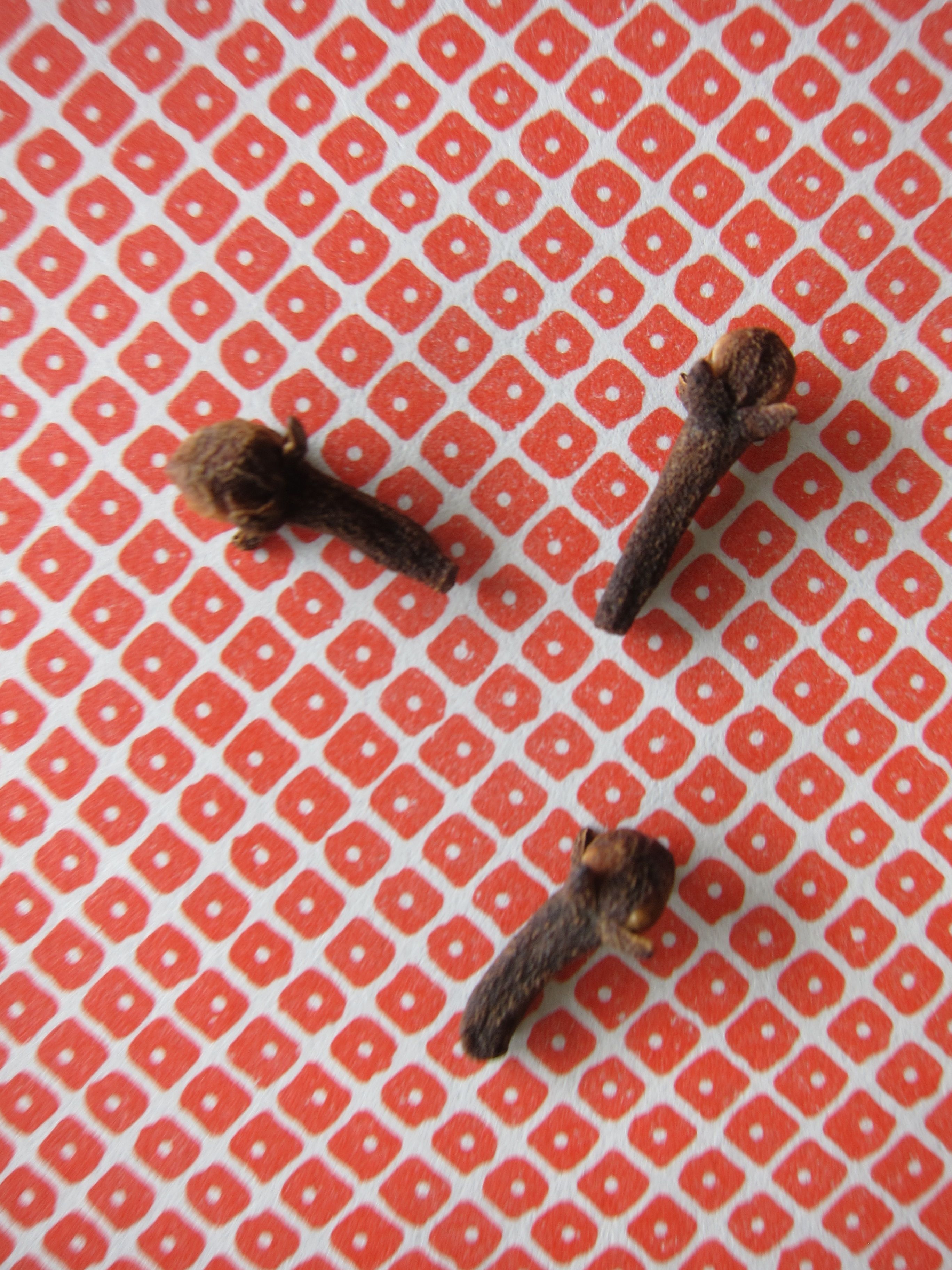
Cloves:
In Ayurvedic medicine, cloves are a Kapha-reducing spice. They help dry out mucous, which is especially good for wet, productive coughs (those with lots of mucous). It is also good for relieving spasmodic coughs. Because of its analgesic effects, it is useful for laryngitis and sore throats. A recent study showed that clove oil is an excellent free- radical scavenger and an effective growth- inhibitor against numerous bacteria.
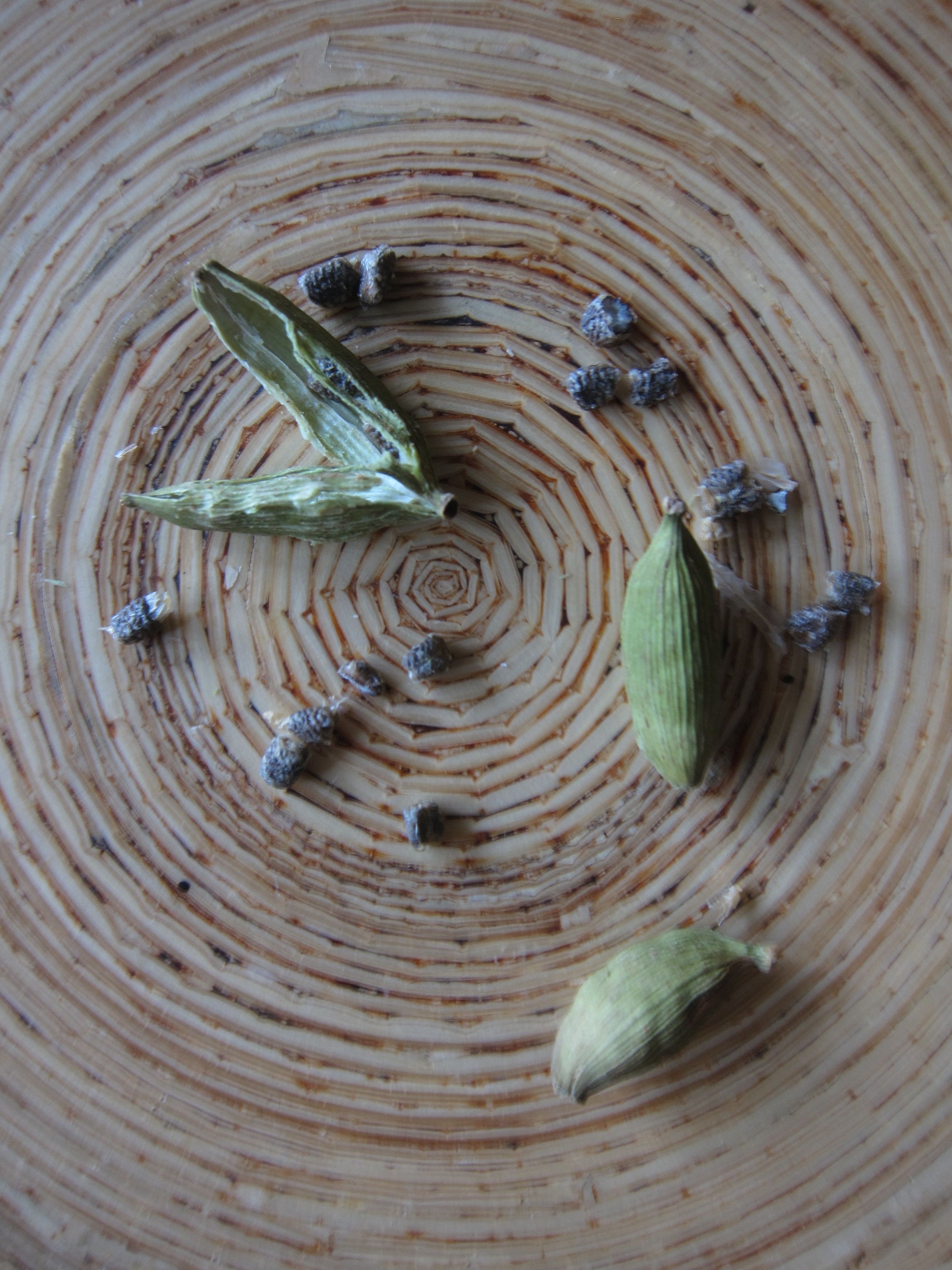
Cardamom:
Cardamom is considered a digestive aid. It helps remove mucous from the stomach and lungs. It is beneficial for sore throats. Cardamom extracts were shown to have an anti-inflammatory effect on the immune system.
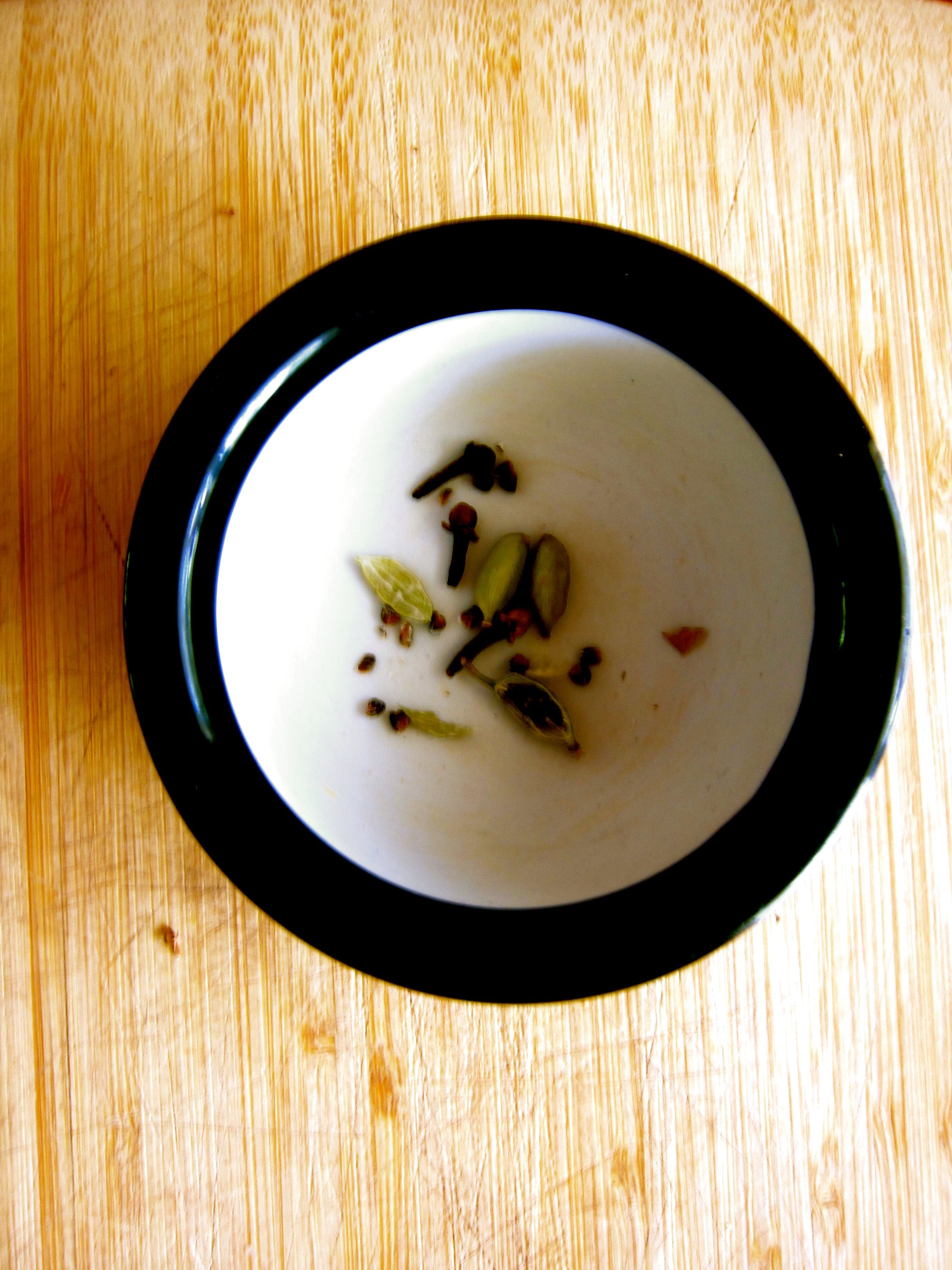 Cardemom and Cloves in mortar ready to be ground with pestle
Cardemom and Cloves in mortar ready to be ground with pestle
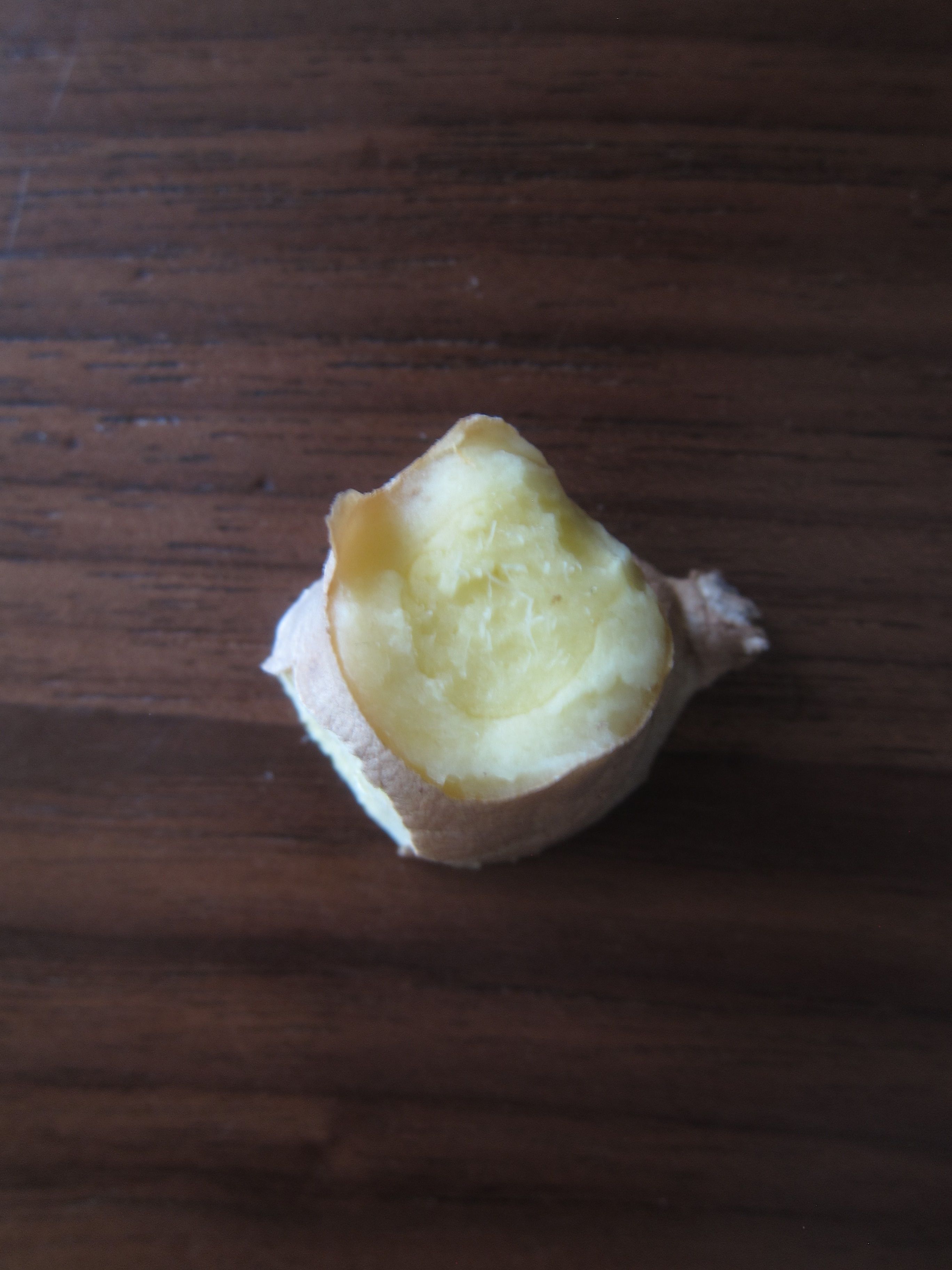 Fresh Ginger
Fresh Ginger
Ginger:
Ginger is a notable and highly respected spice. To be fair, its beneficial properties can be the subject of a single post. But to stay focused, we will limit our praises to its immune-enhancing properties. Ginger warms the body and helps with digestion. Ginger is a good diaphoretic. It is known for alleviating nausea, and helps disperse phlegm in coughs and colds. One study showed that ginger has antibacterial activity against common respiratory pathogens.
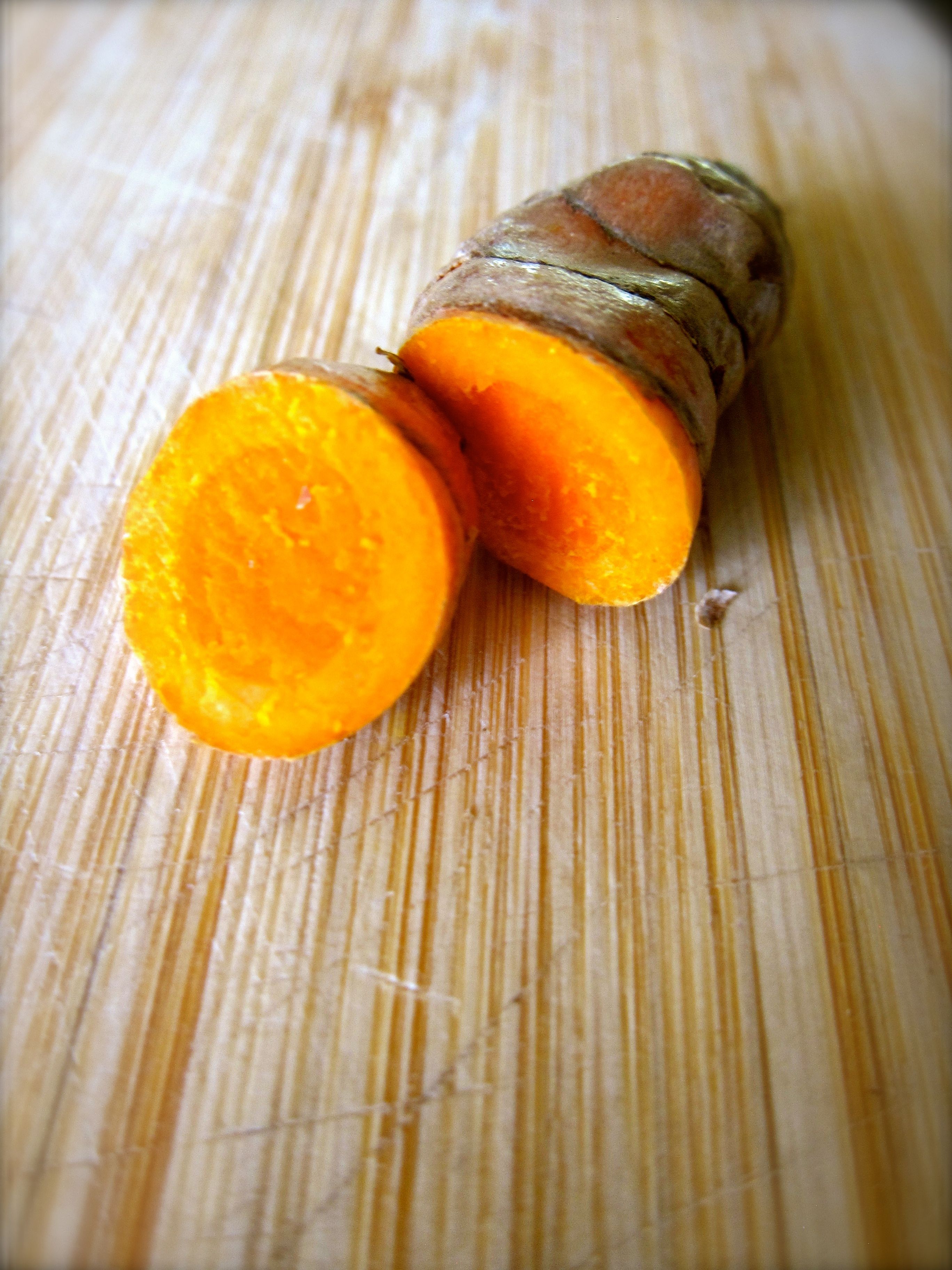
Turmeric:
Turmeric is an especially propitious spice. Its healthful properties warrant an entire post, but again, for the sake of brevity, we will stay focused. Fresh turmeric is stunning. It is the color of a sunset. The taste is sort of like a carrot, but with a slightly pungent aftertaste. It is an excellent natural antibiotic, anti-cancer agent that also aids digestion and helps balance intestinal flora. According to Ayurveda, it is a warming spice. A recent analysis of its molecular components showed antiviral activity against influenza virus A.
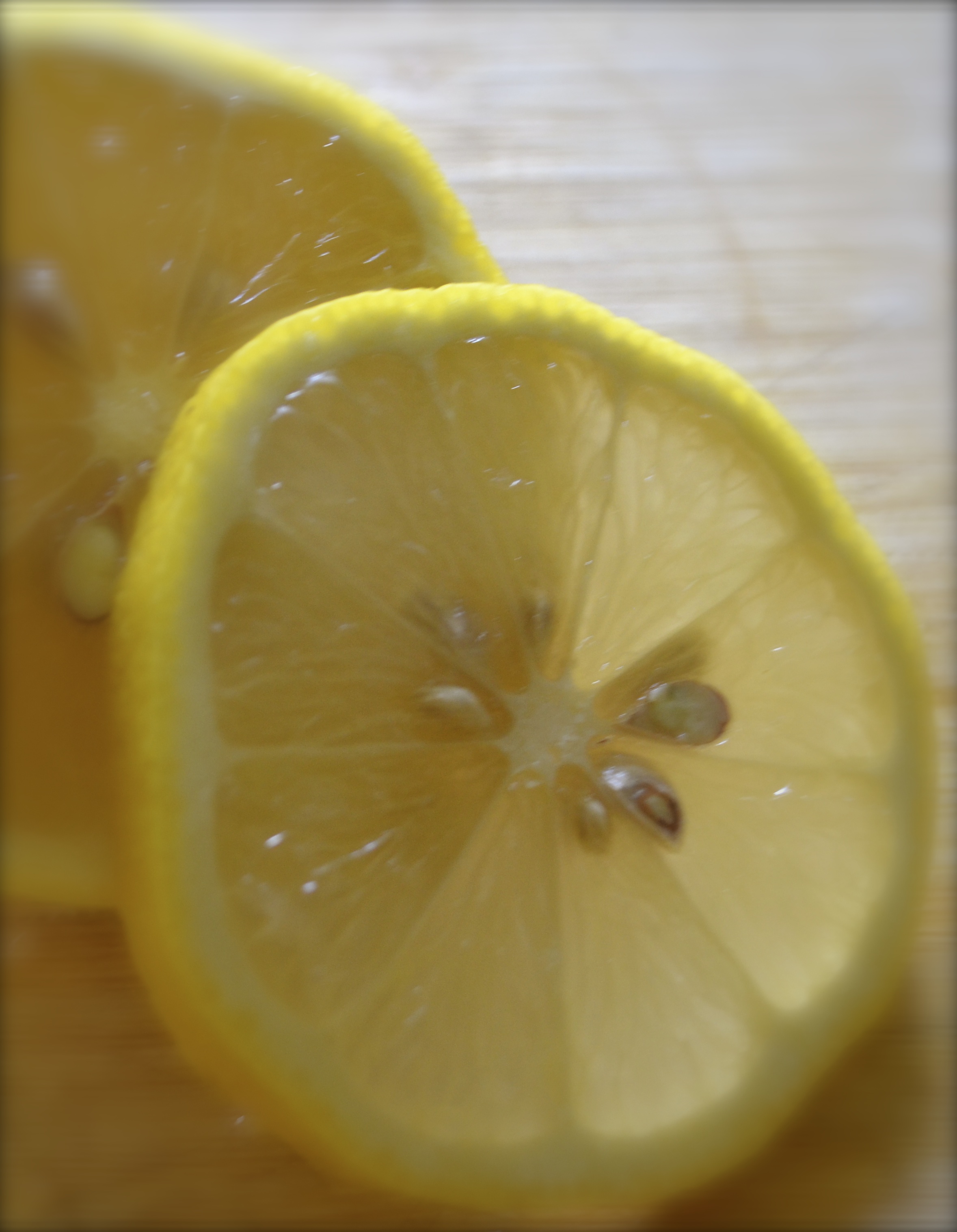
Lemons:
Lemons are a source of Vitamin C. Aside from imparting a tartness to the elixer, lemons contain Vitamin C, a well respected anti-oxidant and essential cofactor in numerous enzymatic reactions that occur in the body. Further,the use of Vitamin C prophylactically has been shown to decrease the duration of a cold. Lemons can alleviate a cough by clearing mucous. They have also been shown to have an antibacterial effect.
Manuka Honey:
Manuka honey(used as a sweetener- 1-2 teaspoons as desired)- You can substitute another honey, but Manuka honey is an especially potent anti-microbial and anti-fungal. All honeys have a low pH and the ability to generate hydrogen peroxide. They use hyperosmolarity mechanisms involving hydrogen peroxide for their antimicrobial actions, but only Manuka honey contains high levels of methylglyoxal(MGO). Hydrogen peroxide is easily denatured by exposure to light and heat. Methylglyoxal is an especially hardy (not damaged by light or heat) and potent antibacterial agent.
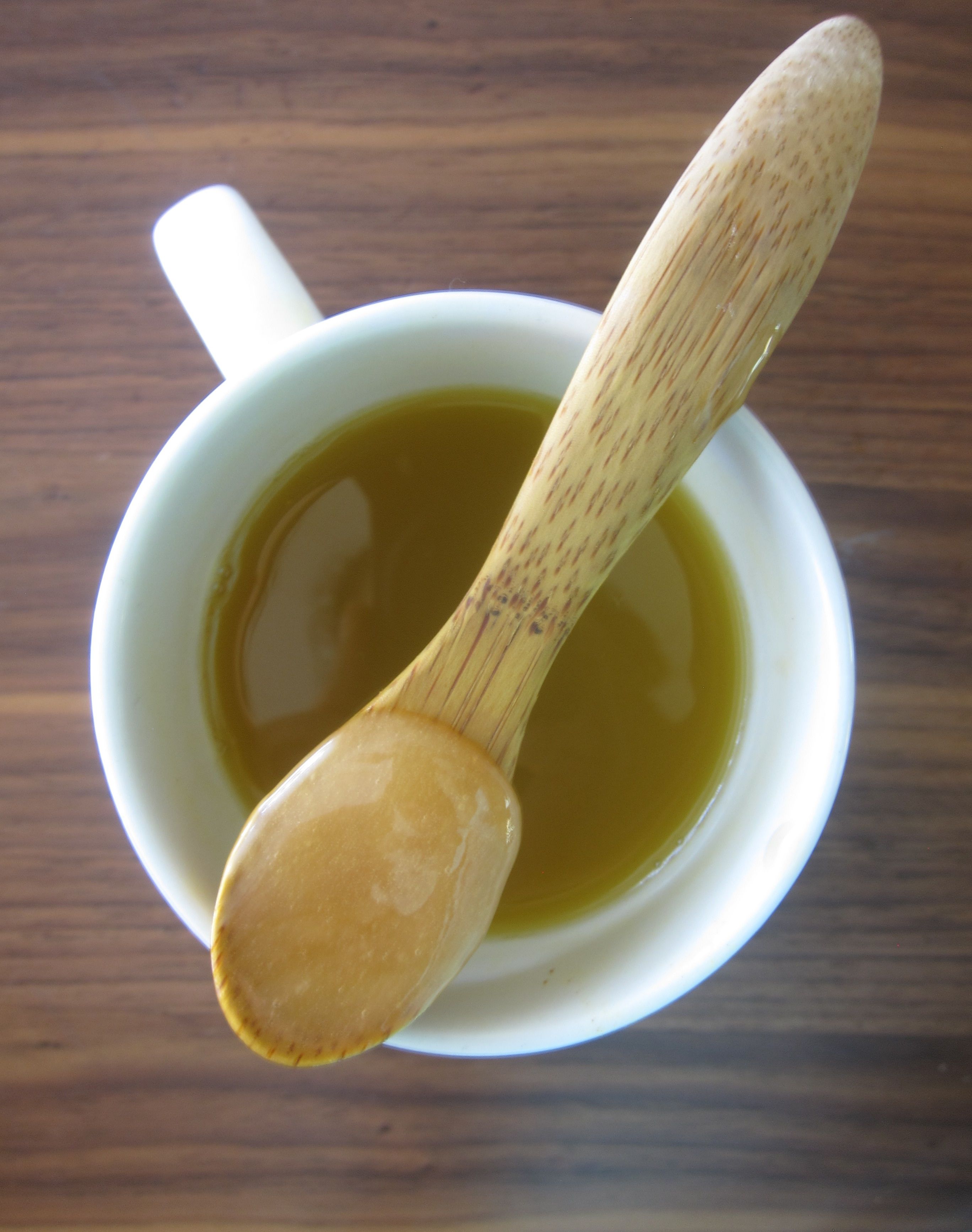
Ingredients:
One and one half cup of water
3 cloves
3 cardamom pods
1 inch of ginger peeled
1/2 inch of turmeric peeled or 1/8 teaspoon( three shakes) of turmeric powder
Juice of half a lemon
1 teaspoon of Manuka honey ( may sweeten to taste)
Directions:
Measure 1.5 cups of water. Pour into a pot. Add the clove and cardamom (It is recommended to grind the cardamom and clove in a mortar and pestle to help release their aromatic oils), Add the ginger, and the turmeric (for the fresh ginger and turmeric, I usually press them through a garlic press to help release their juices, I then throw the macerated root into the pot), juice of half a lemon , bring to a roaring boil, then reduce heat to medium so elixir continues to boil slowly for five minutes. Strain and pour into a cup. Sweeten to taste with a spoonful of Manuka honey. let it cool, then sip.
Please note, the healthful properties of the individual ingredients have been intentionally abbreviated so that this post is easy to digest(ha!). Admittedly, the separate ingredients all deserve their own posts to fully illustrate their healing capacities.
References:
1. Frawley, David, Lad, Vasant (2001)The Yoga of Herbs. p. 109, 112-113, 121-122, 149-150, Lotus press.
2. Pole, Sebastian (2013) Ayurvedic Medicine. p. 151, 162, 183, 217,282, London: Singing Dragon.
2. Examining the evidence for the use of vitamin C in the prophylaxis and treatment of the common cold.
Heimer KA, Hart AM, Martin LG, Rubio-Wallace S.
J Am Acad Nurse Pract. 2009 May;21(5):295-300. Review.
Jervis-Bardy J, Foreman A, Bray S, Tan L, Wormald PJ.
Laryngoscope. 2011 May;121(5):1104-7. doi: 10.1002/lary.21717.
Assiri AM, Hassanien MF.
J Med Food. 2013 Nov;16(11):1046-56. doi: 10.1089/jmf.2012.0288. Epub 2013 Nov 4.
Majdalawieh AF, Carr RI.
J Med Food. 2010 Apr;13(2):371-81. doi: 10.1089/jmf.2009.1131.
6. Sesquiterpenoids from Curcuma wenyujin with anti-influenza viral activities.
Dong JY, Ma XY, Cai XQ, Yan PC, Yue L, Lin C, Shao WW.
Phytochemistry. 2013 Jan;85:122-8. doi: 10.1016/j.phytochem.2012.09.008. Epub 2012 Oct 22.
7. Antibacterial effect of Zingiber officinale and Garcinia kola on respiratory tract pathogens.
Akoachere JF, Ndip RN, Chenwi EB, Ndip LM, Njock TE, Anong DN.
East Afr Med J. 2002 Nov;79(11):588-92.

Leave a Reply